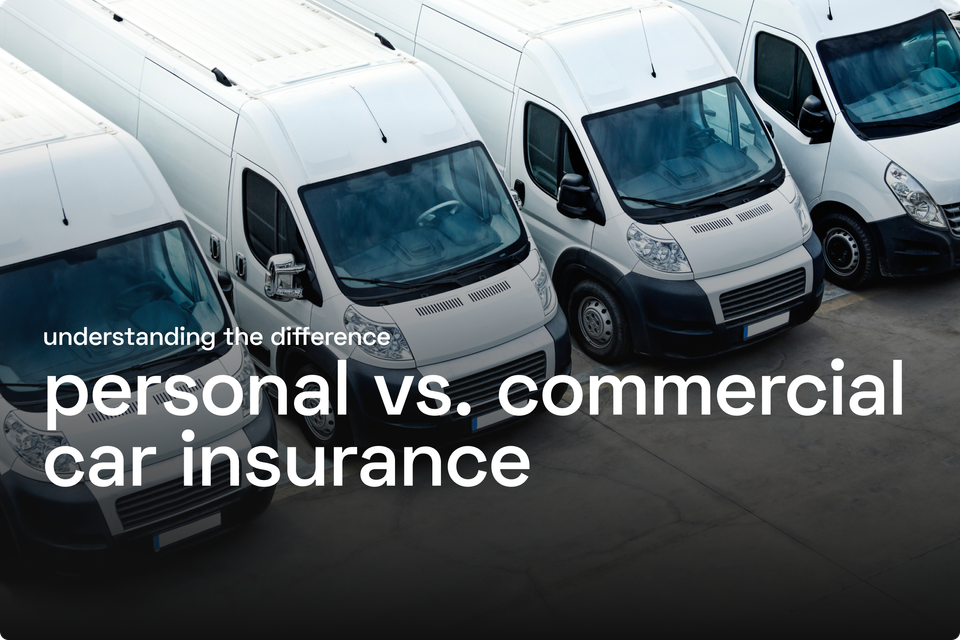Business car insurance vs personal car insurance sets the stage for this enthralling narrative, offering readers a glimpse into a story that is rich in detail with casual formal language style and brimming with originality from the outset.
As we delve into the realm of insurance policies for vehicles, it becomes evident that distinguishing between business and personal car insurance is crucial for individuals and companies alike. The nuances in coverage, cost structures, and types of vehicles covered play a significant role in making informed decisions in this domain.
Differences between Business Car Insurance and Personal Car Insurance

When it comes to car insurance, there are key differences between business car insurance and personal car insurance that are important to understand. These differences determine the coverage, suitability, and cost structures of each type of insurance.
Coverage Variations
- Business Car Insurance: Business car insurance typically provides coverage for vehicles used for work-related purposes, such as deliveries, transportation of goods, or traveling to multiple locations for business meetings. This type of insurance may offer higher liability limits and additional coverage options tailored to business needs.
- Personal Car Insurance: Personal car insurance is designed for vehicles used for personal reasons, such as commuting to work, running errands, or leisure activities. It usually offers standard coverage for personal use and may have lower liability limits compared to business car insurance.
Suitability in Different Scenarios
- Business Car Insurance: Business car insurance is more suitable for businesses that rely on vehicles for daily operations, such as commercial fleets, delivery services, or sales representatives who travel frequently for work. It provides the necessary coverage for business-related activities and protects the business from financial losses in case of accidents.
- Personal Car Insurance: Personal car insurance is ideal for individuals who use their vehicles primarily for personal reasons, such as commuting to work, running errands, or taking road trips. It is suitable for everyday drivers who do not use their vehicles for business purposes.
Cost Structures
- Business Car Insurance: The cost of business car insurance is typically higher than personal car insurance due to the increased risk associated with business use. Business vehicles are more likely to be on the road frequently, increasing the chances of accidents or damages.
The cost of business car insurance may also vary depending on the type of business, number of vehicles insured, and coverage options selected.
- Personal Car Insurance: Personal car insurance tends to be more affordable compared to business car insurance since personal vehicles are generally driven less frequently and for shorter distances. The cost of personal car insurance is influenced by factors such as the driver's age, driving record, type of vehicle, and coverage limits.
Types of Vehicles Covered
Business car insurance and personal car insurance differ not only in terms of coverage but also in the types of vehicles they protect. Understanding the distinctions can help individuals and businesses make informed decisions when selecting the appropriate insurance policy.
Vehicles Covered under Business Car Insurance
Business car insurance typically covers a wide range of vehicles that are used for commercial purposes. These may include company cars, delivery vans, trucks, taxis, and vehicles used for transportation services. It is essential for businesses to accurately disclose the types of vehicles they own and use for work-related activities to ensure proper coverage under the policy.
Range of Vehicles Covered under Personal Car Insurance
Personal car insurance, on the other hand, is designed to protect vehicles used for personal use. This may include cars, motorcycles, SUVs, and other private vehicles. It is crucial for policyholders to specify that the vehicle will primarily be used for personal reasons to avoid potential coverage issues in the future.
Restrictions on Types of Vehicles
Both business car insurance and personal car insurance policies may have restrictions or limitations on the types of vehicles that can be insured. For instance, some insurance providers may not cover exotic cars, antique vehicles, or modified vehicles under standard policies.
It is essential for individuals and businesses to review their insurance policy carefully to understand any exclusions or limitations regarding the types of vehicles that can be insured.
Usage and Mileage Considerations
When it comes to car insurance, the way you use your vehicle and the number of miles you drive can have a significant impact on your coverage and premiums. This is true for both personal and business car insurance policies.
Impact of Usage Patterns on Insurance Coverage
Usage patterns play a crucial role in determining insurance coverage for personal and business vehicles. For personal car insurance, factors such as commuting to work, running errands, or taking leisure trips are taken into account. On the other hand, business car insurance considers factors like transporting goods, making deliveries, or traveling to meet clients.
Mileage and Premiums
When it comes to determining premiums, mileage is a key factor for both personal and business car insurance. Insurance companies use the number of miles driven annually as a measure of risk. Generally, the more you drive, the higher the risk of accidents or damage, resulting in higher premiums.
Examples of Usage Scenarios Affecting Rates
- Personal Car Insurance: A person who only drives short distances to work and back may pay lower premiums compared to someone who regularly commutes long distances.
- Business Car Insurance: A company that operates a fleet of vehicles for frequent business trips will likely have higher premiums than a business that uses vehicles for occasional client meetings.
Coverage Options and Add-Ons

Business car insurance policies and personal car insurance policies offer various coverage options and add-ons to cater to the specific needs of the insured. Here, we will explore the common coverage options available for business car insurance policies, compare the add-ons and enhancements offered for personal car insurance policies, and explain how the customization of coverage differs between business and personal car insurance.
Business Car Insurance Coverage Options
- Liability coverage to protect against claims made by third parties for bodily injury or property damage.
- Comprehensive coverage for damages not caused by a collision, such as theft, vandalism, or natural disasters.
- Collision coverage for damages resulting from a collision with another vehicle or object.
- Uninsured/underinsured motorist coverage to cover expenses if the at-fault driver has insufficient insurance.
- Medical payments coverage for medical expenses resulting from an accident, regardless of fault.
Personal Car Insurance Add-Ons
- Rental car reimbursement to cover the cost of a rental vehicle while your car is being repaired after an accident.
- Roadside assistance for services like towing, flat tire assistance, and fuel delivery in case of a breakdown.
- GAP insurance to cover the difference between the actual cash value of your car and the amount you owe on a loan or lease in the event of a total loss.
- Accident forgiveness to prevent your premium from increasing after your first at-fault accident.
Customization of Coverage
Business car insurance policies typically allow for more customization in coverage options to meet the specific needs of a business, such as coverage for multiple drivers, commercial use, and higher liability limits. On the other hand, personal car insurance policies often offer standardized coverage options with limited room for customization, focusing more on add-ons to enhance the basic coverage provided.
Ending Remarks

In conclusion, the comparison between business car insurance and personal car insurance sheds light on the intricacies of each policy type. Whether it's understanding the coverage options, considering usage patterns, or exploring customization features, this exploration aims to equip readers with valuable insights to navigate the complex world of car insurance effectively.
Questions Often Asked
What are the key differences between Business Car Insurance and Personal Car Insurance?
Business car insurance typically provides coverage for vehicles used primarily for business purposes, while personal car insurance is designed for vehicles used for personal reasons. The coverage variations, cost structures, and types of vehicles covered differ between the two.
How does usage impact insurance coverage for personal and business vehicles?
The usage patterns, such as commuting or business trips, play a crucial role in determining insurance coverage. Mileage is also a significant factor in calculating premiums for both business and personal car insurance. Different usage scenarios can influence insurance rates in each category.
What are the common coverage options available for business car insurance policies?
Common coverage options for business car insurance may include liability coverage, comprehensive coverage, collision coverage, and uninsured/underinsured motorist coverage. These options cater to the specific needs of businesses using vehicles.














